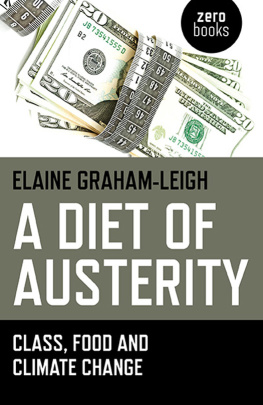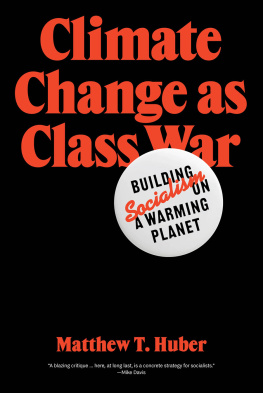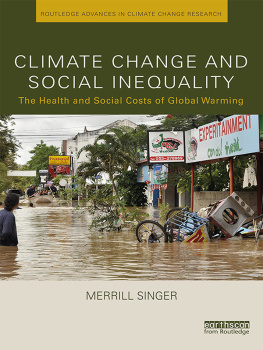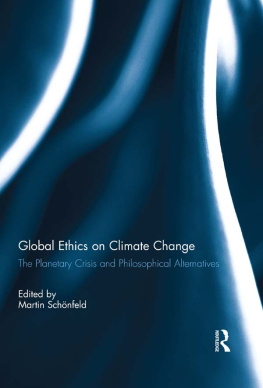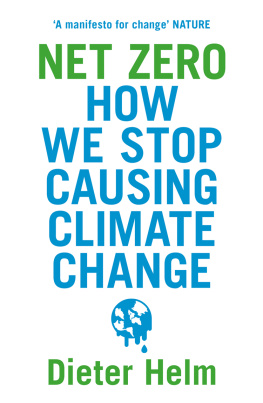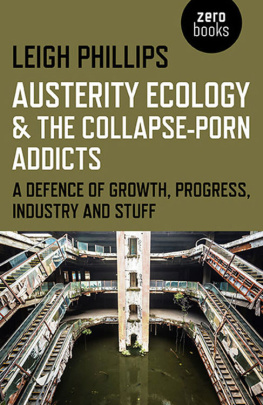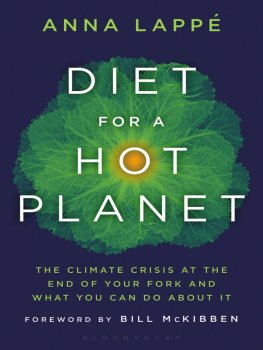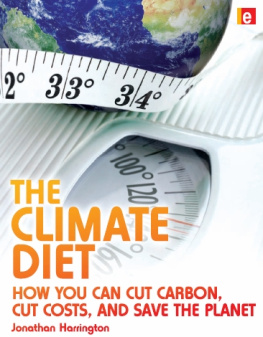WHAT PEOPLE ARE SAYING ABOUT
A DIET OF AUSTERITY
Elaine has a produced a must-read book for all of us concerned with combatting climate change. We cant diet our way to a better world but we can and must change the system to sustain the future. This book is well written, fascinating, controversial and essential.
Derek Wall, former Green Party of England and Wales Principal Speaker and author of The Rise of the Green Left
Who is to blame for climate change? Graham-Leigh says its not fat people, cows or the working class. A challenging and interesting book, packed with new ideas to make you think again about what you thought you knew.
Jonathan Neale, author of Stop Global Warming, Change the World
Food production and consumption is increasingly recognized as a major driver of global climate change, but where does the balance of blame lie? Elaine Graham-Leighs book makes an important and timely contribution to the debates swirling around food production systems, overconsumption and climate change. The class-based ideological assault on working people as the culprits of our multi-faceted ecological crisis are elucidated with great clarity by the author. For people who believe combining social justice with ecological sustainability is an essential part of the answer, Graham-Leighs book provides essential ammunition as to why it is our system of food production for commodity exchange, and the waste inherent in it, rather than individual behavior and food choices, that lies at the heart of the crisis.
Chris Williams, author of Ecology and Socialism
An excellent, polemical book; enjoyable, interesting and very, very well-written. A really new contribution to theory and an incisive argument.
Chris Nineham, author of The People v Tony Blair
First published by Zero Books, 2015
Zero Books is an imprint of John Hunt Publishing Ltd., Laurel House, Station Approach, Alresford, Hants, SO24 9JH, UK
www.johnhuntpublishing.com
www.zero-books.net
For distributor details and how to order please visit the Ordering section on our website.
Text copyright: Elaine Graham-Leigh 2014
ISBN: 978 1 78279 740 1
Library of Congress Control Number: 2014949960
All rights reserved. Except for brief quotations in critical articles or reviews, no part of this book may be reproduced in any manner without prior written permission from the publishers.
The rights of Elaine Graham-Leigh as author have been asserted in accordance with the Copyright, Designs and Patents Act 1988.
A CIP catalogue record for this book is available from the British Library.
Design: Stuart Davies
Printed and bound by CPI Group (UK) Ltd, Croydon, CR0 4YY, UK
We operate a distinctive and ethical publishing philosophy in all areas of our business, from our global network of authors to production and worldwide distribution.
For Dominic Alexander
Preface
Like any book, this project has had many beginnings, but its real origin was perhaps the Campaign Against Climate Change demonstration in London in late 2008.
The national climate change marches, timed to coincide every year with the international climate change talks, had been held since 2005. Whatever the official focus of the demonstration they always showed a wide mix of placards, with people advocating every green position from direct action to beekeeping. I wouldnt have expected the 2008 demonstration to be an exception, but what did strike me, looking around the protestors gathered in Parliament Square, was the prevalence of placards about food; in particular about meat and its contribution to climate change.
I hadnt considered foods role in climate change since I was first in the movement and argued with older activists about the greenness or otherwise of eating chips at the bus stop on the way home from meetings. I felt a little blindsided, as if I had missed a memo. I also felt that there was a disconnect somewhere in using such a collective statement of people power as a national demo to call for an action like giving up meat, which could only be done by individuals at home.
Sitting on one of the handy walls around the edge of the square, I got into conversation about the day with the woman next to me. Despite the decent turnout, she was in a pessimistic mood. People just werent prepared to change their behaviour, she told me. We would never persuade them to give up their cars, and all the campaigning in the world for better public transport wouldnt change that. However, she added, brightening up, what we could do was persuade everyone to give up eating meat. That was much more realistically achievable and would be the best thing we could do for the climate. I didnt think I agreed, but couldnt muster any more coherent arguments than that I personally found the idea of changing my travel habits easier and less intrusive than my eating patterns. As she pressed a Vegan Society leaflet on me, I came to two decisions: that I would wait until I was in the tube to eat the pork pie I had in my packed lunch, and that this food argument needed looking into. This book, after many changes of direction along the way, is the result.
Thanks are due to many people: to everyone who took time out of their day to let me come and ask them questions; to Charlotte Cooper for posting about the project on her site and finding me more people to pester; to my comrades in Counterfire for support, engagement and political argument. I am particularly indebted to Chris Nineham for perceptive comments on an early draft and to Feyzi Ismail for encouragement and friendship. Angela Graham-Leigh generously put aside our political differences for long enough to proof-read and was glutton enough for punishment to offer to do it twice. Lastly, without Dominic Alexanders insights, support and belief in the project this book would never have been started, let alone finished. In gratitude for his love and comradeship, it is dedicated to him.
Introduction
It is a familiar and depressing story: the poor blamed for poverty and more, for taking resources from everybody else.
When a 500-a-week benefit cap was introduced in April 2013 by Haringey Council in North London, one of the first local authorities in the UK to try it, Susan and Samantha decided to step forward and let the local benefit justice campaign highlight their cases. The details were shocking enough, showing the hardship people across the borough would be facing. For both, single mothers with a number of children, the effect of the cap was to leave them having to find money for their housing costs out of their already tight budgets. As the benefit justice campaign explained to its supporters on its Facebook page, Susan, who has seven children, used to get 537 in benefits per week, plus 245 in housing benefit. The 500 cap took 282 away and left her with 245-worth of rent to find out of her 500 maximum benefits, and so 255 for everything else. Thats well below a minimum decent standard of living (the Joseph Rowntree Foundation estimates that to get this, a single parent with three children would need 458 a week) and between eight people, works out at under 32 each for the week.
With facts like these, Susan and Samantha could have expected a sympathetic hearing from the campaigns Facebook followers. Some did indeed agree that this was a disgraceful way for a rich country to treat its poorest citizens, but there were plenty of opposing views. Does this woman with 4 kids and no income think that life is any different for those of us that fund her extravagant lifestyle choices? asked one commenter about Samantha.

